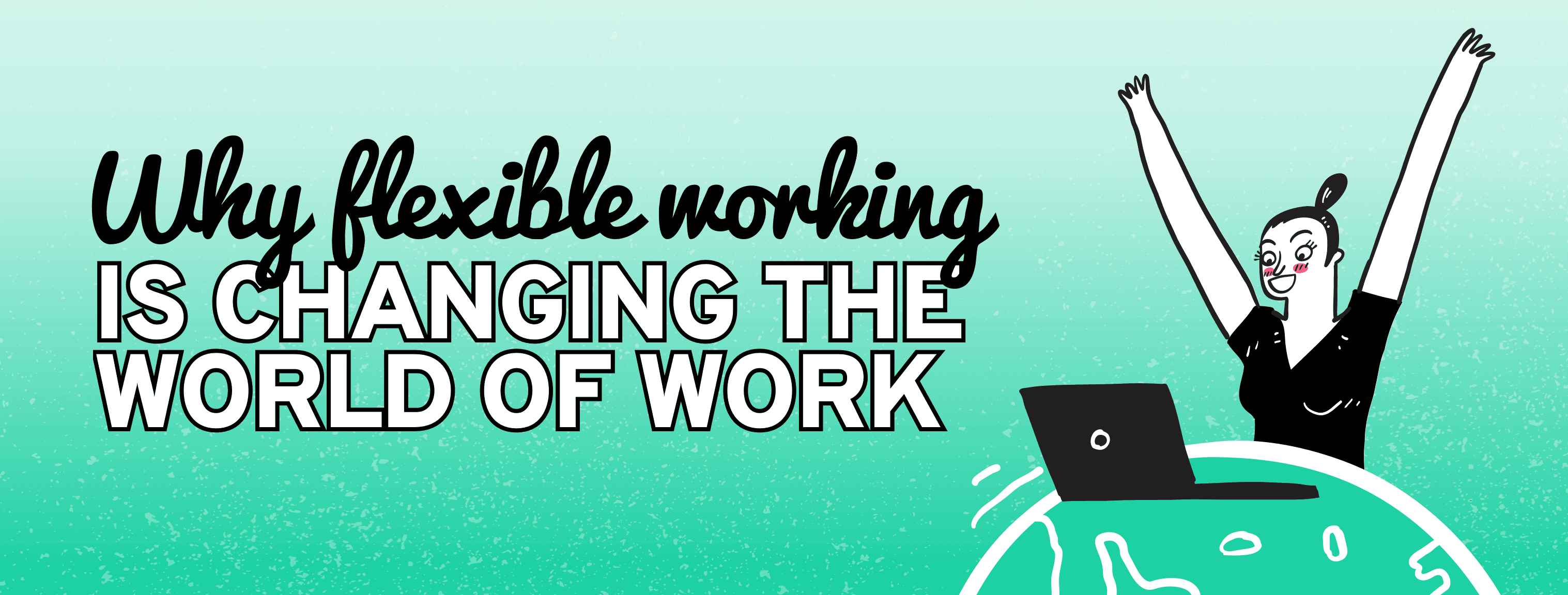Why Flexible Working Is Changing The World Of Work
Written by Content Writer, Jemima Owen-Jones at our fantastic partner, Deel.
17th Aug 2022

Statistics from Deel’s latest State of Global Hiring Report 2022 demonstrate how flexible working arrangements are changing the future of work, redistributing talent and wealth, and aiding global diversity, inclusivity and equality.
According to the World Bank, the COVID-19 pandemic exacerbated economic inequality, widening the gap between rich and developing countries to levels seen a decade earlier. However, despite these setbacks, the pandemic also brought an unexpected benefit, the uptake of flexible working.
Flexible working is a work arrangement that enables individuals to adjust their work hours, working patterns, and work location to fit their needs. As the demand for flexible working increases, businesses are embracing remote hiring to fill worker shortages and hire quality talent outside their borders.
Deel’s latest global hiring report covering the last six months pulls data from 100k+ remote worker contracts. The report indicates rates of global hiring increased by 145% or more in all regions, with companies in LATAM and APAC leading the way.
The flexible work model, remote work, and the ensuing global hiring have taken the world by storm. But how are these new ways of working, transforming the work environment for the better? Below we share three poignant findings.
1. Flexible working is creating a diverse world of work
With more flexible working options entering the job market and companies hiring across borders, workforces are increasingly composed of people from diverse cultures and backgrounds.
According to Deel’s report, the following countries are hiring talent globally:
- Germany, Hong Kong, and Brazil are hiring the fastest from the US, filling positions for talent advisors, recruiters, and sales developers.
- Peru, Colombia, and Uruguay are hiring the fastest from Argentina, filling positions for software engineers and developers
- Australia, Singapore, and the UK are hiring the fastest from India, filling positions for enrolment advisors, digital marketers, and sales developers.
- Switzerland, Estonia, and Croatia are hiring fastest from the UK, filling positions for content creators, business developers, and software engineers.
Companies with diverse workforces have stronger financial outcomes since they are better positioned to meet the needs of diverse customer bases. Some sources state the cash flows of diverse companies are 2.3 times higher than those of companies with more monolithic teams.
In addition, diverse companies are 70% more likely to capture new markets than organisations that do not actively recruit and support talent from under-represented groups. Diverse perspectives can challenge cultural preconceptions, leading to innovation and inspiring new ideas.
2. Flexible working is creating an inclusive world of work
As a company’s workforce becomes more diverse, it must also become more inclusive, as it starts adapting to become more culturally sensitive and aware. Employees also reap the many benefits of a diverse workforce.
Deel’s report shows that the Middle East and Africa are two of the fastest-growing countries to hire from. As is the case in most countries and cultures, religion is a very important aspect of people’s lives throughout these regions.
Companies are updating work policies to accommodate prayer breaks, religious holidays, and attire. These accommodations ensure co-workers feel accepted and have a sense of belonging within their work community.
Diverse companies also use floating holidays and flexible working practices to allow workers to take time off for national and religious holidays and cultural events that are not on the company calendar.
It’s also common practice within diverse companies to educate employees about different religious practices. Lunch-and-learn-type meetings invite employees to share their religious practices or celebrate World Religion Day with education and activities.
Overall, a more inclusive world of work is where we accept everyone for their differences yet treat them fairly, which leads to our final point; equality.
3. Flexible working is creating an equal world of work
Workplace flexibility enables workers to access job opportunities and higher salaries that would otherwise be out of reach due to geographical restrictions and conflicting time zones. Access to more opportunities helps to redistribute global wealth and improve the well-being and quality of life of those living in developing countries.
According to the Global Wealth report, in 2019, the US controlled almost 30% of the entire world’s net worth, closely followed by Europe and China. Comparatively, entire underdeveloped continents such as Africa and Latin America only controlled 1.14% and 2.75% of the world’s wealth, respectively.
However, Deel’s report shows that Italy, Brazil, and India, have experienced the fastest growing salary increases through securing jobs with foreign employers. The surge in pay in these countries indicates a promising shift in the global inequality gap, with flexible working giving greater bargaining power to workers in developing countries.
In addition to salary increases, workers are also gaining access to more robust benefit packages. Companies with global workforces are developing global mandatory benefits policies to provide workers with benefits that often exceed the minimum allowances in their local jurisdiction.
Both full-time and part-time workers employed in countries with limited entitlements to PTO, parental leave, and healthcare are now enjoying more generous allowances and perks in line with wealthier economies, improving work-life balance and the overall standard of living.
Ensuring flexible work works for everyone
Flexible working is pivotal in reimagining the new world of work. However, as new societal values, changing demographics, and rapid globalisation redefine the nature of work, we must ensure flexible working remains inclusive, accessible, and sustainable for marginalised workers.
Future initiatives should consider existing social and human infrastructures and develop support, training, skilling, and entrepreneurship to nurture marginalised communities and support retention.
As we replace traditional office environments and workspaces with flexible, remote, and hybrid working arrangements, we must also ensure new technology caters to marginalised job seekers, accounting for their unique situations, strengths, and everyday resilience.